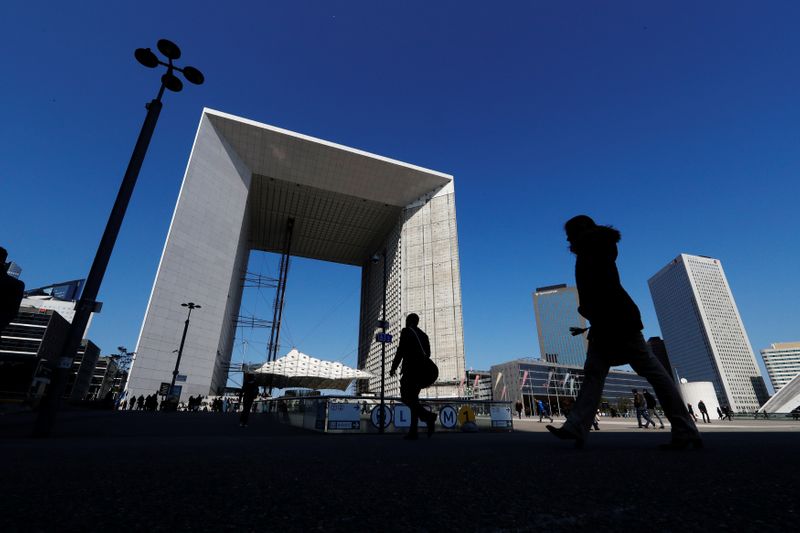By Leigh Thomas
PARIS (Reuters) - French unemployment fell unexpectedly at the end of last year to an 11-year low, official data showed on Thursday, offering President Emmanuel Macron a boost on the economic front.
The unemployment rate fell to 8.1% in the final three months of last year from 8.5% in the third quarter, which was revised down from an initial reading of 8.6%, the INSEE statistics agency said.
The result brought the jobless rate to its lowest level since the fourth quarter of 2008. It far exceeded expectations for a rate of 8.5% on average in a Reuters poll of 11 economists, with none expecting anything lower than 8.4%.
The big drop will be a welcome development for Macron after weeks of strikes as trade unions put up fierce resistance to his planned overhaul of the state pension system.
"This is a clear success for France, and for the economic policy that we've been pursuing these last three years," Finance Minister Bruno Le Maire told broadcaster BFM TV.
The fall in unemployment comes even though the economy contracted slightly in the final quarter, which economists mainly put down to the strikes hitting manufacturers' supply chains.
Despite the weak finish to the year, the French economy last year outperformed other big euro zone economies like Germany because it has a smaller exposure to exports and thus the slowdown in global trade.
With demand at home firm, French companies have steadily added to staff numbers, also emboldened by labor code changes under Macron that have made hiring and firing easier.
INSEE said that not only did joblessness fall but the number of people in jobs rose in the fourth quarter to its highest level since comparable records began in 2003.
The employment rate, which captures the share of people of working age who are in jobs, reached 65.9%. The jobless rate captures the number of people who are of working age and are actively seeking work.
The share of people on permanent labor contracts reached 49.3%. Along with the fourth quarter of 2018 when the same rate was reached, it was the highest since the third quarter of 2009.

The rate has risen since Macron's reform of the labor code, which economists say is because employers are less uneasy than in the past about putting people on permanent contracts that previously made it difficult to get rid of workers if business soured.